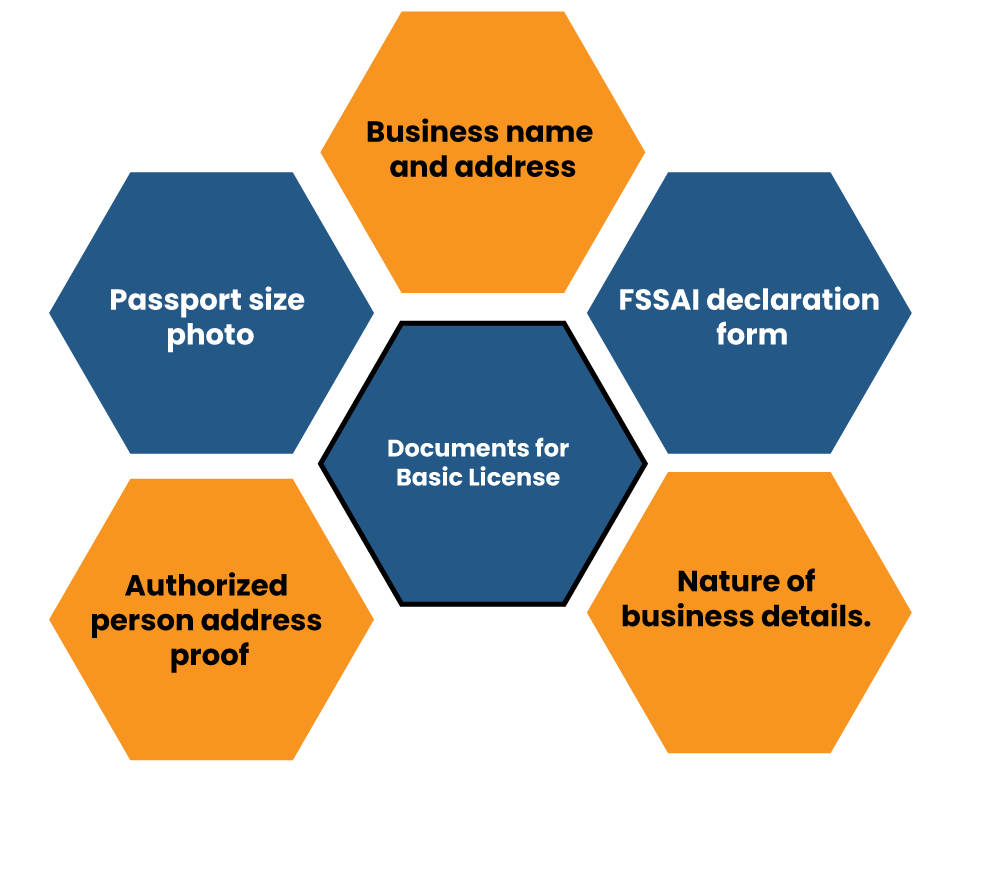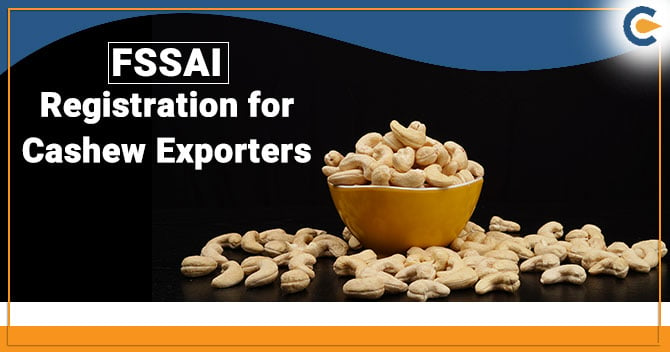The Food Safety and Standards Authority of India (FSSAI) came into effect to promote food safety awareness among Indian citizens. After independence, the food business has thrived rapidly. The increasing of shops, restaurants, and hotels has also escalated illicit activities such as adulteration. In view of this, FSSAI aims to curb such activities through stringent norms and compliances. At present, FSSAI mandates every food business operator to avail FSSAI license before indulging in business activities. The same rule applies to cashew exporters as well. In this article, you will become aware of important prerequisites regarding the FSSAI registration for cashew exporters.
Why do Cashew Exporters need to under register under FSSAI?
As per Food Safety and Standards Act, 2006, any entity involved with a food business (directly or indirectly) must have a valid FSSAI license at its disposal. Penalties will be imposed on the defaulters in case they chose to operate with this license.
Keep in mind that the degree of involvement has nothing to do with the obtainment of a license. Even the packagers and marketers in the supply chain of the food have to obtain this license with an exception.
Read our article:An overview on Audit from FSSAI
An overview of Cashew exports from India
- Cashew (aka Anacardium occidentale L.), a tree belong to Eastern Brazil came to India nearly 5 centuries ago. It was introduced by the Portuguese in Goa. Owing to its exceptional taste and benefits it was spread to the rest of the Indian territory within few years.
- The commercial cultivation of cashew was started in the 1960s and within a matter of a few years, it gets transformed into a high-valued and export-oriented crop.
- Export of cashew nutshell liquid/Cardanol from our country stood at 4,547 MT, amounting to Rs 23.16 crore (US$ 4.68 million), while the cashew kernels’ exports stood at 55,272 MT, amounting to 3,731.23crorese during April 2018-January 2019.
- Export valuation from raw cashew nut during April 2018-January 2019 was come out to be 11,414 MT. When translated to the monetary terms it stood at Rs 143.98 crore (US$ 29.12 million).
- At present, India holds nearly 65% of worldwide cashew exports, with a reach of h over 60 countries. The major market for export includes United States[1], Germany, Spain, Japan, Netherlands, UK, Gulf nations.
What type of FSSAI registrations are available to cashew exporters?
FSSAI issues license under 3 heads i.e. Basic, State, and Central licenses. The issuance of these licenses entirely depends on the scope of operation and annual turnover.
Any business owner who is generating less than Rs 12 lakhs of annual revenue can seek basic registration. Once this threshold limit is surpassed, there is no way a business owner can adhere to the basic license. In such a situation, the business owner needs to switch over to the state license.
Type of documents to be arranged by cashew exporters for the Basic FSSAI Registration


What is a State FSSAI Registration for Cashew Exporters?
As per the Food Standards and Safety Authority of India, i.e. (FSSAI), the state license must be obtained by business owners whose annual turnover resides between Rs 12 lakhs to 20 crores. The business owners who fit this threshold criteria need to file an online application on the FSSAI’s portal. Again, all the food business operators linked with the supply chain of food is liable to avail of this license.
State FSSAI License Documentations
- Business premises’ rental agreement.
- Identification proof of the relevant personnel involved in the business. (Passport/DL/Voter ID/Aadhaar Card)
- Certificate of Incorporation, Partnership Deed, Pan card, Trade License, GSTIN number
- MOA & AOA for an applicant who operates a private limited company.
- Partnership Deed in case of a partnership firm.
- For State food registration, furnish one of the following documents.
- Trade license
- Shop & establishment registration
- Panchayath License.
- Corporation license.
- Municipality license.
- Business’ nature.
- FSSAI declaration form
The manufacturers and the re-packers however need to arrange the following documents.
- Manufacturing unit photos
- Machinery’s details present in the plant on the Company’s letterhead.
- Product details on the company’s letterhead
- Plant schematics.
- Capacity & Horse Power details.
A scenario that triggers the requirement of Central FSSAI Registration for Cashew Exporters
According to the Food Standards and Safety Authority of India, aka (FSSAI), an entity or a firm whose annual turnover is well above Rs 20 crore is mandated to get central FSSAI registration. The intimation regarding the revenue growth to authority is crucial to stay isolated from penalties. If the business owner opts to stay with licenses other than mandatory FSSAI registration during their operation, then the penalties will come into effect.
FSSAI Central License Documentations
- Business premises’ rental agreement.
- Identification proof of the relevant personnel involved in the business. (Passport/DL/Voter ID/Aadhaar Card)
- Certificate of Incorporation, Partnership Deed, Pan card, Trade License, GSTIN number
- MOA & AOA for an applicant who operates aprivate limited company.
- Partnership Deed in case of a partnership firm.
- IE Code (Import-Export Code) Certificate.
- Declaration stating that the applicant is eligible for filing an FSSAI registration application. It must be printed on the company’s letterhead.
- List of the food categories addressed by the business owner.
The manufacturers and the re-packers however need to arrange the following documents.
- Manufacturing unit photos
- Machinery’s details present in the plant on the Company’s letterhead.
- Product details on the company’s letterhead
- Plant schematics.
- Capacity & Horse Power details.
What are the FSSAI standards for dry fruits?
The FSSAI has a specified code number – 4.1.2. 2. for the dried fruits, seeds, and nuts. Following are the standards that need to be followed by the dry fruit business operators in India.
- All FBOs must commit to providing safe dried fruits to the end-users.
- Given the food listing system cited in the Food Safety and Standards Amendment Regulations, 2016, all seeds, dried fruit, & nuts come under the category of processed foods.
- Water retention in such foods is completely forbidden to avert contamination & microbial growth.
- The permissible packaging for dried fruits includes wooden boxes, paper bags, aluminum containers, bottles, and cardboard boxes.
- Dried fruits, nuts, and seeds accessible to the public must not contain:
- Mould & insect fragments or contamination
- Shells, stalks, fiber, pits, & peel
- Sour flavors, including fermentation, rancidity, & mustiness
- Artificial coloring
- Contaminated, Blemished, & damaged nuts
Conclusion
Obtaining an FSSAI license isn’t a tedious undertaking at all. All cashew exporters are required to appropriately fill the online details and upload the aforesaid documents in the permissible format. Connect with CorpBiz’s team in case you encounter any obstacle while online filing.
Read our article:An Outlook on FSSAI Registration for Retailers











